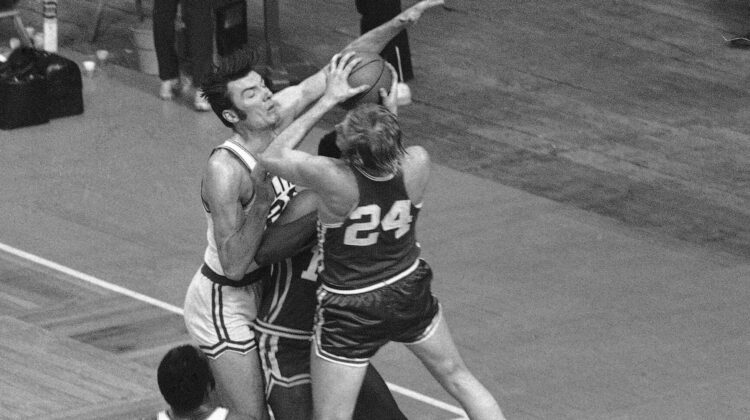Henry “Hank” Finkel is a Lynnfield resident and NBA champion with the Boston Celtics. The New Jersey-born 7-footer never thought he’d make it to the big stage in basketball, mostly because his main goal was to get a college education.
Finkel attended Dayton University, where his shooting started to make a name for him.
“The only thing I was looking forward to at that time was my college education. Once I started playing basketball, I realized I was a pretty good shooter for a 7-footer. Once I started scoring, people started to pay attention. I guess that’s when the Lakers took notice,” Finkel said.
Nowadays, the NBA Draft is a big occasion that fans look forward to each year, and draft prospects have draft parties and do promotional and marketing events. However, back in 1966, it wasn’t so glamorous. In fact, Finkel didn’t even realize he was drafted initially.
“I found out I was drafted by reading a newspaper,” Finkel said. “I remember reading the paper and seeing my name and was like, ‘Wow, that’s my name.’”
Finkel was drafted with the 17th pick in the second round by the Los Angeles Lakers. Before his NBA career took off, Finkel said two players helped him tremendously.
“The first was Vinnie Ernst. We playedin an All-Star Game in New York when I went back to New Jersey. He threw me a pass and it bounced off the back of my head. He came up to me and said, ‘Don’t you turn your back when I have the ball,’” Finkel said. “I ended up scoring like 25 or 30 points that night because of him. That was the first time I had a player really helping me.”
The second player was Jerry West.
“When I was with the Lakers, I was known as a shooter in college. I tried to shoot over LeRoy Ellis, who was playing center for the Lakers at the time, and he blocked my first two or three shots,” Finkel said. “Jerry West came over and said, ‘Hey, you don’t have to shoot it every time you get the ball. Go around and set some picks. Set a pick for me and if I have a shot, I’ll take it. If not, roll to the hoop and I’ll get you the ball.’ That was the second biggest factor in my career. I ended up making a career of setting picks and it worked out really well for nine years.”
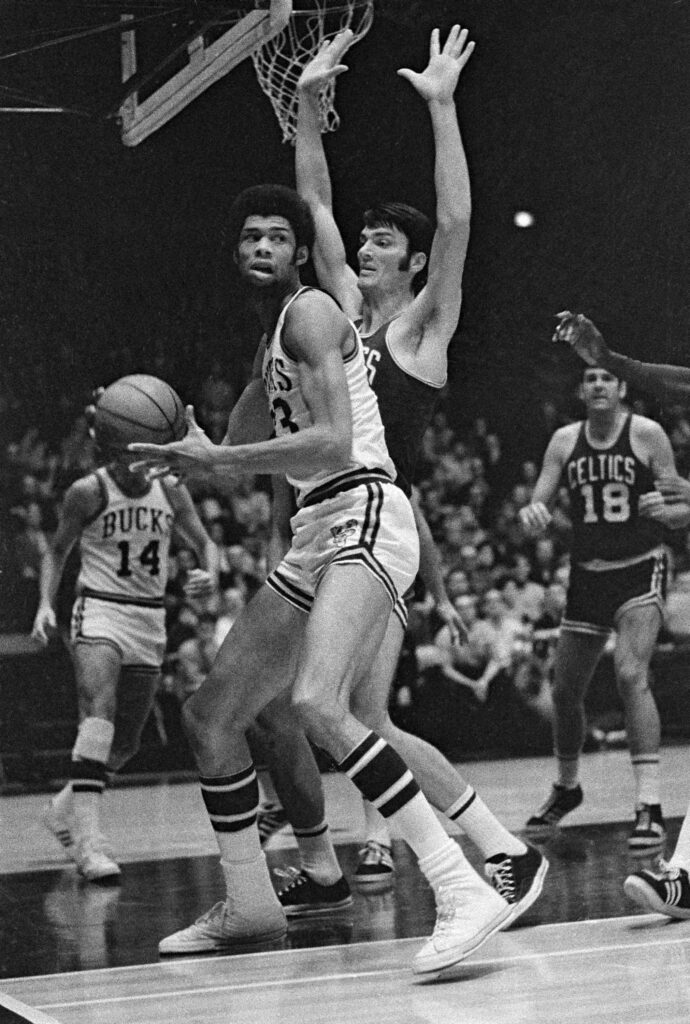
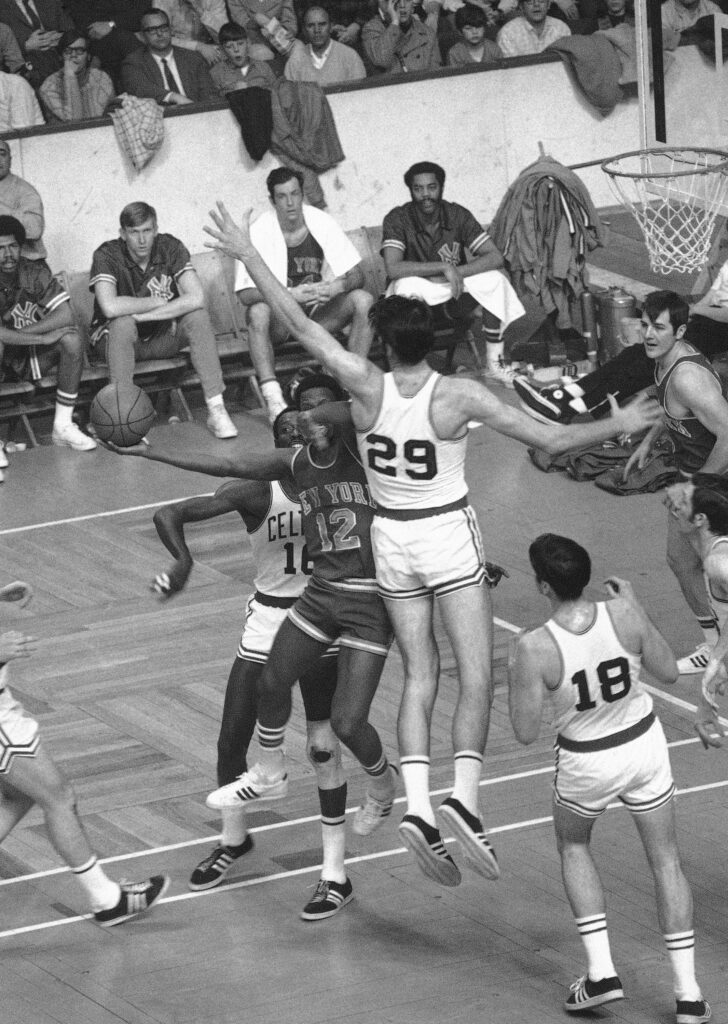
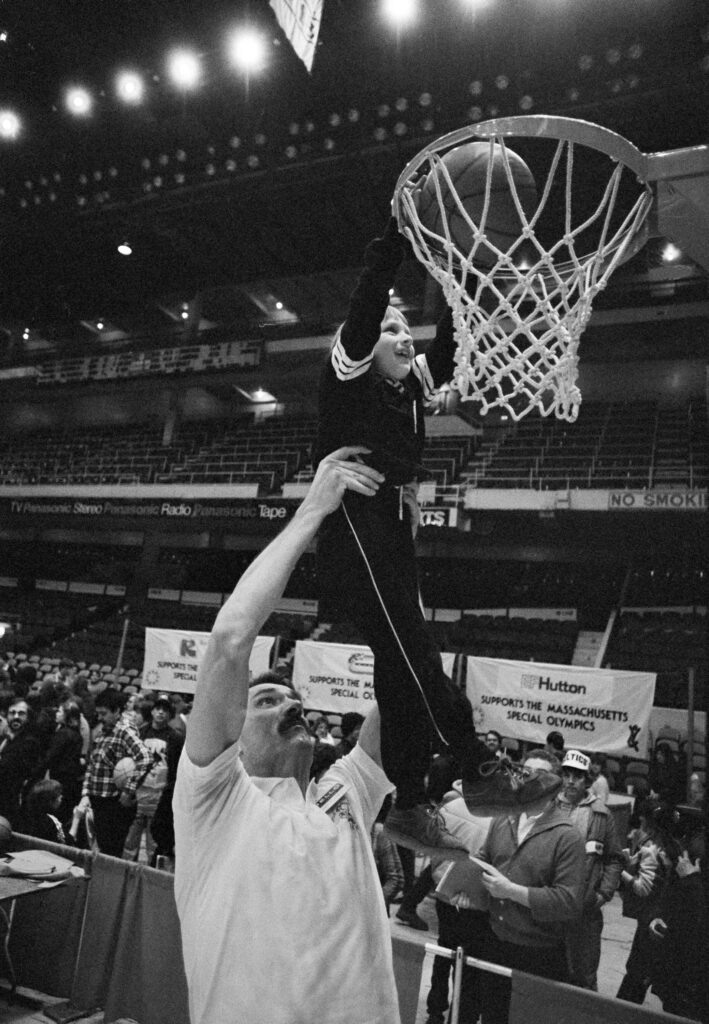
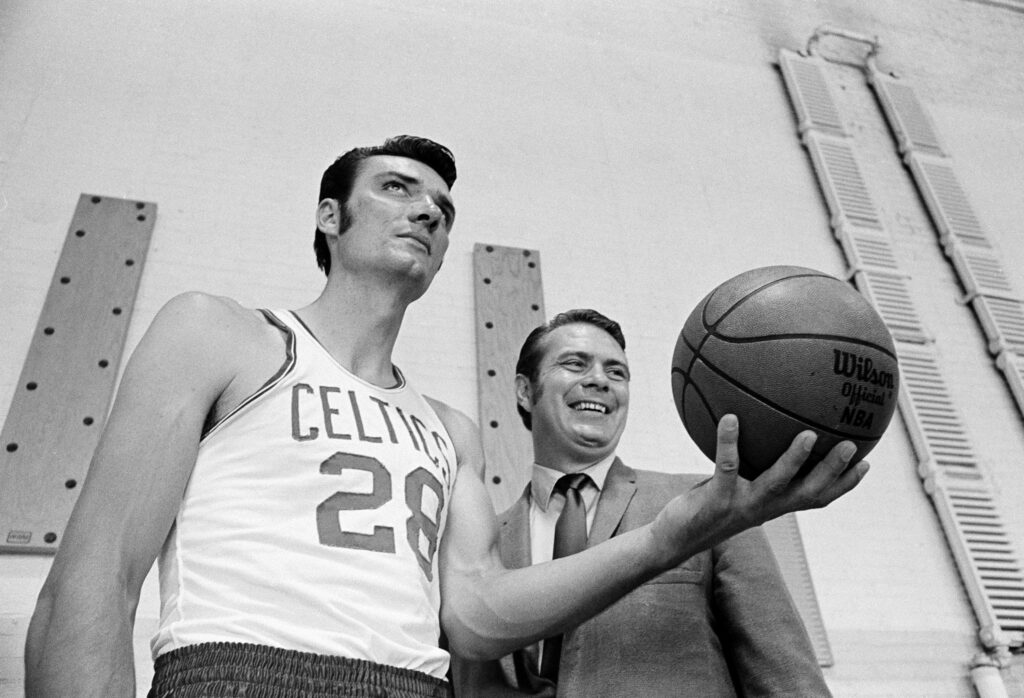
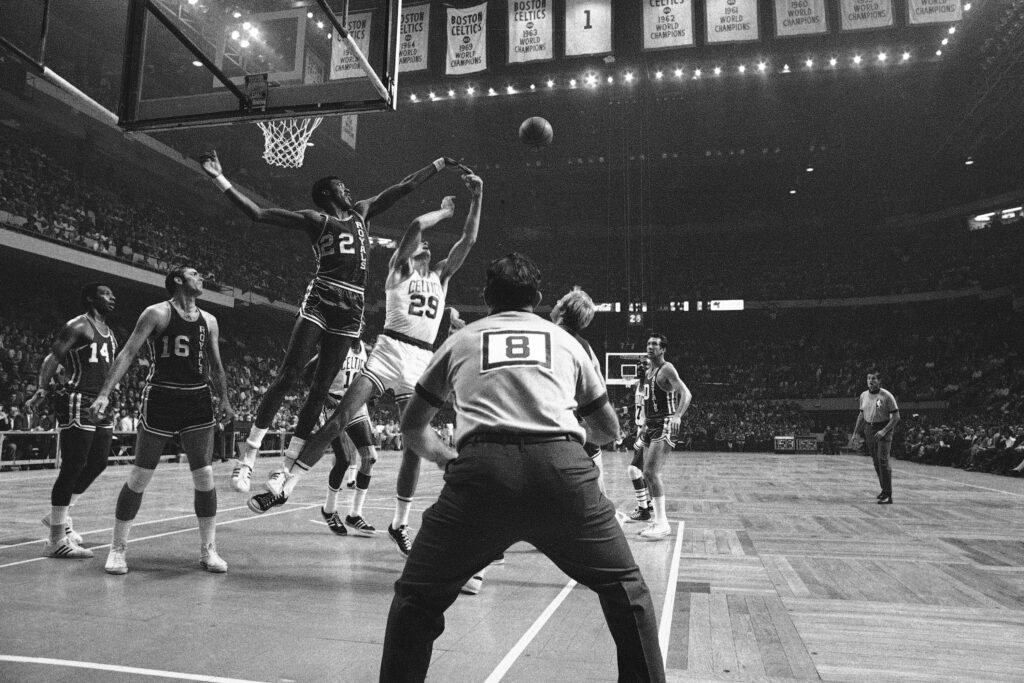
Finkel eventually found himself on the San Diego Rockets (now the Houston Rockets), where he enjoyed a successful first season with the team, averaging 11.6 points and 7.1 rebounds per game.
However, his stint in San Diego didn’t last long, mainly because San Diego drafted future Hall of Famer Elvin Hayes.
“I played quite a bit in San Diego in my first year. Then they drafted Elvin Hayes. Elvin is a great player and played center, so he took over the center position in my second year. I felt like I could play in the league, so I asked to be traded,” Finkel said.
Finkel’s wish was granted and he was traded back to the East Coast, where he would wear the iconic green and white.
“When Pete Newell was the general manager at San Diego and I asked for a trade, he told me they had the opportunity to trade me to Boston and asked what I thought. I remember thinking how much I liked San Diego as a town, but I didn’t like it as a team anymore. So when I heard they were thinking of trading me to Boston, I remember thinking about the parquet floor, Red Auerbach, Sam Jones, K.C. Jones, and Bill Russell, I just thought it would be great to be traded from an expansion team to an established championship team,” Finkel said.
When Finkel was traded in 1969, it was the same year when legendary player Tommy Heinsohn took over as head coach for the Celtics.
“Tommy came in to coach the same year I came to Boston in 1969. Tommy took over from where Red left off. Red was so successful, all Heiny had to do was run the same plays,” Finkel said. “The first year I was in Boston, the fans weren’t so happy because they just won the championship. We still won 38 games, whereas today you get teams that don’t even win 15.”
“We had the likes of Jo Jo White, John Havlicek, Don Chaney, Don Nelson, myself, we had a pretty smart team. We knew how to win not from talent, but from using our brain,” Finkel said. “Then we drafted Dave Cowens, and the rest is history and he made us a contender every year.”
Finkel said that playing with Hall of Fame players and coaches was a great experience.
“They all knew how to win. The only thing you wanted to do was win. If you won, everyone was happy, and if you didn’t, they weren’t,” Finkel said.
With Russell retiring in 1969 when Finkel was traded to Boston, fans expected the team to stay the same and competitive.
“I’m not a Russell and never claimed to be a Russell, I was just a fringe player. I remember Red would come and talk to me once in a while and try to calm me down and told me we would get me some help,” Finkel said. “Sure enough the help was Dave Cowens and the rest is history. He turned the team around and I turned into a backup center which was ok to me.”
The acquisition of Cowens proved to be a difference-maker, as Boston would go on to win the 1974 Championship in seven games.
“We beat Milwaukee in Game 7 in Milwaukee. They had Oscar Robertson, Kareem Abdul-Jabbar, and Bob Dandridge,” Finkel said. “I just remember playing with guys who wanted to win. That was what was so great about that championship, all those guys wanted to do was win. The championship in a way was secondary because they just wanted to win, no matter what was at stake.”
After a solid NBA career, Finkel said he doesn’t watch the NBA anymore, as the game is completely different from when he used to play. He did acknowledge that he checked into some of the Finals this year to see how Boston did and was happy when the Celtics won.
“It’s such a dramatically different game from when I played. When I played it was offense and defense, you had set plays and had people talking to each other on defense. Nowadays it’s all three-pointers. I’m not knocking the game, I’m just saying it’s different now,” Finkel said. “I remember Red saying once, ‘I don’t care who has the ball, if there’s a better shot, give them the ball.’ Nowadays, they just throw the ball back for a three-point shot.”
Finkel now resides in Lynnfield and has been a resident here for the last 50 years.
Finkel will forever be etched in Celtics basketball history as he helped bring a title to Boston, which at the end of the day, is what matters most in Title Town.

